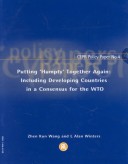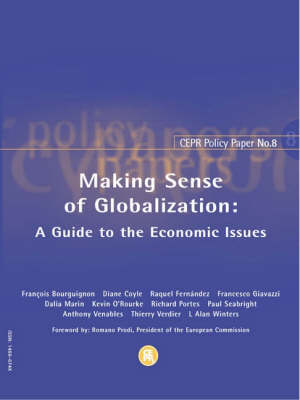CEPR Policy Paper
2 primary works
Book 4
The fourth CEPR Policy Paper discusses the failure of the WTO Ministerial meeting to initiate a new round of world trade talks in Seattle in December 1999. The authors argue that this reflects several negative forces: the parties' widely disparate positions; the lukewarm attitude of governments towards further trade liberalization; and a failure of the WTO as an institution. They contend that an effective coalition in favour of the trading system must be put together before starting another serious round of talks and that this requires both paying greater attention to the substantive needs of developing countries and to procedural reform of the WTO. The authors propose an eight-point plan to balance the needs of the developing and developed worlds and conclude that the best strategy for developing countries is not to resist a Round and liberalization, but to embrace them, and focus them on their development needs.
Book 8
Making Sense of Globalization
by Francois Bourguignon, Dalia Marin, Anthony J. Venables, L Alan Winters, Francesco Giavazzi, Diane Coyle, Paul Seabright, Thierry Verdier, Kevin H. O'Rourke, and Raquel Fernandez
Published 8 July 2002
Globalization is, in some respects, a centuries-old phenomenon. Only now, however, are we examining which aspects of the current wave are old and which are new and the effects of these on poverty and inequality in the world. Furthermore, it is difficult to be sure whether the poor economic performance of some countries (notably in sub-Saharan Africa) is due to their having been insufficiently open to the world economy, or whether they lacked the institutions and capacities (such as in human capital) that would have enabled them to benefit from such opportunities and embrace globalization successfully. CEPR's new Policy Paper analyses how various institutions, including corporations, national governments and the many institutions of civil society, have responded or potentially could respond to these developments.

